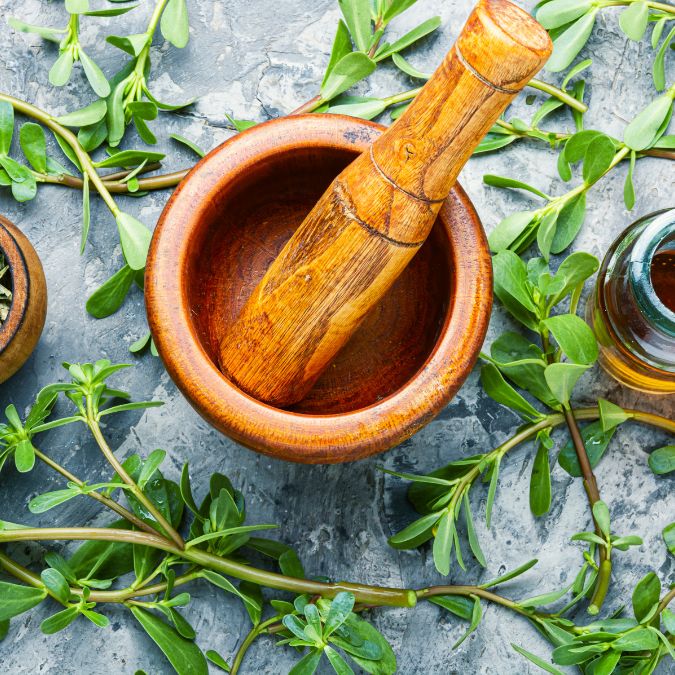Do you remember the famous television series, There is no one who lives here? It started airing in 2003, almost nothing!, and it still makes us laugh and have a great time watching it.
There was a hilarious character that I don't know if you'll remember: the herbs , played by Isabel Ordaz. The herb was a peculiar woman; She seemed self-absorbed all the time, as if living in her own dimension, and she had a curious way of perceiving everything that was happening around her, while she responded without mincing words to any subject that was raised.
At this point, I would like you to look at how we have associated the world of herbal teas (of "herbs") with a type of eccentric and slightly misfit person, when, in reality, plants have been offering us the best of themselves. for thousands of years and have super beneficial properties for our body.
Who has not ever taken a chamomile to calm the stomach or used it to gently clean the eyes? And how good does a mint with honey and lemon feel when we have a cold? They are old acquaintances and there is no Spanish house that does not have some sachets in the closet.
Today I want to talk to you about the lesser-known medicinal plants in our country. Let's find out!

- skullcap :
Skullcap is a perennial plant found in Asia and Europe. It has anti-inflammatory, analgesic, and antispasmodic properties and is used to treat headaches, menstrual pain, and anxiety.
- Fenugreek:
Also known as fenugreek or fenugreek, it is an annual plant (it is born, grows, flowers and dies in a period of 12 months) that proliferates in Asia and Africa. Its properties are mainly anti-inflammatory, hypoglycemic (helps reduce blood sugar levels) and galactogogue (stimulates the production of breast milk in lactating women). It is used to treat diabetes and inflammation.
- Celtic Valerian:
Celtic Valerian is a perennial plant that lives in Europe. It has sedative, anxiolytic and antispasmodic properties and. therefore, it is used to treat insomnia, anxiety and headaches.
- echinacea :
Surely this sounds more like you! Echinacea is a perennial plant native to North America. With its immunomodulatory, anti-inflammatory, and antiviral properties, it is used to treat colds, infections, and allergies.
- centaurea cyanus :
This annual plant is found in Europe and Asia, mainly. It has anti-inflammatory, healing and antispasmodic properties, which makes it ideal for treating wounds, burns and menstrual pain.
- wild marigold :
Another annual plant, also from Europe and Asia. It is used to treat wounds, burns and skin infections thanks to its anti-inflammatory, healing and antibacterial properties.
- Passiflora caerula :
Passiflora is a climbing plant native to South America. It has sedative, anxiolytic, and antispasmodic properties, making it great for treating anxiety, insomnia, and headaches.
- Salicornia europaea :
Salicornia, abundant in Europe and Asia, has diuretic, anti-inflammatory and antioxidant properties and is excellent for treating fluid retention, inflammation and oxidative stress.
- Plantago lanceolata:
Another wonderful perennial plant from Europe and Asia. It has anti-inflammatory, healing and analgesic properties; great for treating wounds, burns and headaches.
- Veronica Beccabunga :
Veronica comes in handy on cold dates because it is used to treat coughs, sore throats, and headaches as it has anti-inflammatory, antispasmodic, and expectorant properties.
I do not want to leave behind my beloved Matcha Tea , originally from Japan in its ceremonial degree and considered a superfood with great benefits for health: it burns fat, regulates blood sugar, gives you energy without nerves and a long etcetera that I detail more in my website matchaflix.com .
And you will ask yourself: Yes, David, but if they are so unknown, where can I get these medicinal herbs?
I am a fan of herbalists , because of the way they treat the genre and their deep knowledge about plants and their characteristics. You can also buy them online but, if you have doubts, always turn to a professional to advise you.
Keep in mind that although these plants may have medicinal properties, you will have to consult before using them to treat any health problem. In addition, some can interact with medications and have side effects, so if this is your case, you should consume them under medical supervision.

Share:
How to prepare a perfect beetroot infusion